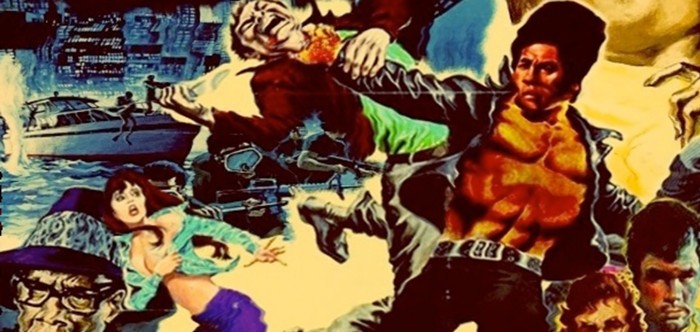THE COMMON OPINION is that Michael Nesmith was the Monkee of substance—a glib way to say he wrote his own material. (This, too, is unfair: Davy Jones, Micky Dolenz, and Peter Tork also have songwriting credits on Monkees albums.) But after leaving the group in 1970, Nez embarked on a widely varied career ranging from writing novels to producing films like Repo Man. Along the way, he continued to write and record music, and Friday night he'll perform a rare concert with his band, drawing from songs from his impressive solo career ("Papa Gene's Blues" will be the only concession to his Monkees days).
Nesmith's show will include prefacing many of his songs with storytelling, perhaps a way to incorporate the many disciplines he works within. "I write in all forms," he says, "music, lyrics, prose, screenplays, stage plays, narratives, novels, comedy sketches, and each has its own discipline and each has radically changed over the years—principally due to the internet and the new means of distribution. I write every day, a little here and a little there." Nesmith adds, "The show is a straight-ahead concert, and while the songs are introduced with a verbal nod to the song's settings, the heart of the concert is the music and the skill of the outstanding players I am fortunate to work with."
Nesmith's songs cover the full stylistic map, embracing many American musical traditions. Still, this is the man who can be at least partly credited with pioneering country rock, from twangier Monkees gems like "The Kind of Girl I Could Love" and "Good Clean Fun," to his first three solo albums with the First National Band, which remain country-rock masterpieces. "I am not particularly attracted to country music per se," Nesmith says, "but I have found some interest in singers and writers over the years who have influenced or been embraced by a country music audience—Hank Williams and Jerry Lee [Lewis], for instance. These were more the definers of the form rather than the other way around and so were influential to me. I certainly don't dislike country music—it fits nicely in my cabinet of music I listen to—but I spend more time outside in other forms than inside the country music regime."
In addition to his own work, Nesmith also produced Bert Jansch's 1974 album LA Turnaround, whose cover hauntingly shows the Scottish folk musician smoking a cigarette; Jansch died of lung cancer in 2011. "Bert was a classic," Nesmith remembers. "I enjoyed his music and his company very much. He followed me to LA after our English sessions—hence the album name—and immersed himself in the nightlife and pub culture there... actually, the bar culture would be more apt. He was a good player and writer and we got on famously; we very much enjoyed playing together. But as you point out, the cigarettes finally took him down. He had a deep sorrowful soul carved from the native stone of his homeland, and he never strayed from it so he played from the heart of it. The production of the record was simple. We turned on the microphones, the tape recorder, and just played. That was all there was to it and all there needed to be."
Last year, Nesmith reunited with Tork and Dolenz to play some Monkees dates following the unexpected death of Davy Jones. "The Monkees were really his band, and so Micky and Peter and I kept that in mind when we performed and we tried to give as much of Davy as we could without him being there."
But for the most part, Nesmith refuses to rely on his legacy as a TV star and teenybopper icon. If that means much of his solo work has gone overlooked, he's fine with it. "I am happy with the way my songwriting life has developed and don't feel in the slightest mistreated," he says. "Quite the contrary—I feel fortunate and grateful for a life that allows me to pursue the writing desires I have. Clearly the songs I have written only occasionally wander into the public acceptance of commercial music, but they are outliers there and I wouldn't call them hits, or myself a pop songwriter. But the people who know my music and writing have been with me for many decades now and know the warp and weft of my songs from a different place than pop music—and I find that a solid and meaningful point of connection. It is a place I can share with them and them with me."



















